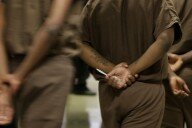If you’ve grazed trending top stories or tuned into evening news programming over the past few weeks, you’ve probably gained awareness of the political and social unrest that’s been reaching deadly boiling points in Ukraine. If you haven’t, just scan the front page of media giants like The New York Times, The Guardian or CNN and you’ll quickly be brought up to speed. Images of bloodshed in Kiev’s Independence Square, burning barricades and increasingly violent protest against the corrupt Ukrainian government continue to pervade headlines and Twitter updates as the severity of the rebellion ensues.

Meanwhile, nearly 6,000 miles from Kiev, similar events are brutally tyrannizing Venezuela. Comparable to Ukraine, cities like Caracas and Valencia are suffering the brutality of domestic armed forces and being killed by the handful on a daily basis, all as a result of peaceful protests derived from political injustice. On Wednesday night, tensions between National Guard units and nonviolent civilians imploded. Footage from individually recorded YouTube videos exposed guardsmen shooting tear gas into residential buildings, killing any bystanders that they believe look suspicious and raiding apartments and houses in search of student protestors. The Twitter feeds of Venezuelan citizens are ridden with cries for help and gruesome photos of casualties in the streets. Caracas Chronicles reported that the South American country experienced “a spasm of violence that’s unlike anything the country has experienced since 1989.” It is perhaps one of greatest examples of governmental injustice that the world will ever witness. However, you won’t see the faces of Venezuelan victims saturating the front pages of any major news sources.
The mainly student-driven protests are a result of a long history of public demands for tighter security, freedom of speech and greater access to foreign and domestic goods. Since President Nicolas Marudo’s rise to power in 2013, Venezuela undergone a 56% inflation rate and a 50% increase in the budget deficit. The Marudo administration has largely placed blame for this economic strife upon foreign relations, particularly those with the United States. In the past, Marudo himself has dubbed U.S. economic powers as “fascists and the parasitic bourgeoisie” in response to problems like the Venezuelan dollar’s decrease to an bleak 87 to 1 exchange rate against our own currency. Such bad blood has lead to an extreme decline in foreign trade.

As protesting has spread through the country’s most heavily populated cities, they have gone from peacefully led exercises of human rights to virtual war zones. So what’s with the lack of global media coverage? Why must we rely upon amateur videos and personal social media outlets as the most up-to-date accounts of a predominant, tyrannical issue? Largely, it is because the Venezuelan government has issued what is being called a “media-blackout”, limiting investigation and fragmenting information. San Cristóbal, according to Caracas Chronicles, has been “taken off the Internet amid mounting repression” and reporting from outside nations has largely been banned under command of President Marudo. He has also issued formal threats toward CNN, claiming that the Venezuelan government will not hesitate in taking action if the news corporation does not “rectify its coverage.”

Such internal, governmental hostility is largely what is obstructing global, public knowledge of what’s really going on in Venezuela. Articles that have been published by top news outlets have been vague and included few details precisely because reporting on them could be a major threat to our national security. Fully investigating the true terrors of the Venezuelan tyranny would come at a high cost to the safety of our foreign correspondents and ultimately in the safety of the U.S. At a certain point the line must be drawn between accurate reporting and endangering our own. Outside sources such as access to viral video footage have helped us in realizing the severity of this conflict, but as the Venezuelan government continuously detains and kills its people and cracks down on the public availability of the Internet, the scope of our access and knowledge are dwindling.
It is shocking and saddening that the rallies led mainly by unarmed youths have transformed into savage bloodbaths and despotism. In gaining control of its citizens’ social media platforms and resisting international investigation, Venezuela’s government is gaining greater leverage in its barbarity and oppression. Not to mention they are heightening tensions with both foreign allies and enemies. While independent sources like Caracas Chronicles continue to serve as the desperate voice of a grieving nation, it is difficult to determine if and when international aid will take action. In complying with stringent press constraints, countries like the U.S. are able to avoid directly plunging into Venezuelan conflict. On the opposite side of the coin, less all-encompassing coverage implies that violence will worsen and the lives of innocent people will continue to perish. At what point does one nation’s individual security take presedence over the security of humanity? There may be no win-win answer or immediate solution to this question. All we know now is that, as media regulations increase, the cries of Venezuela’s suffering people are becoming harder and harder to hear.

Photos courtesy of: CaracasChronicles





